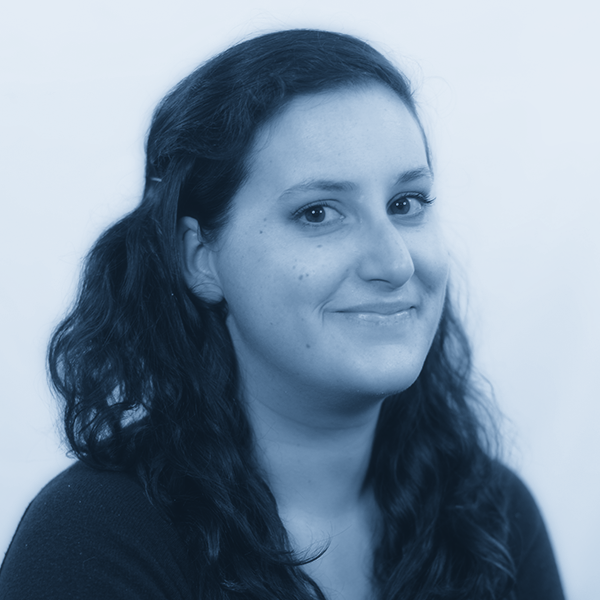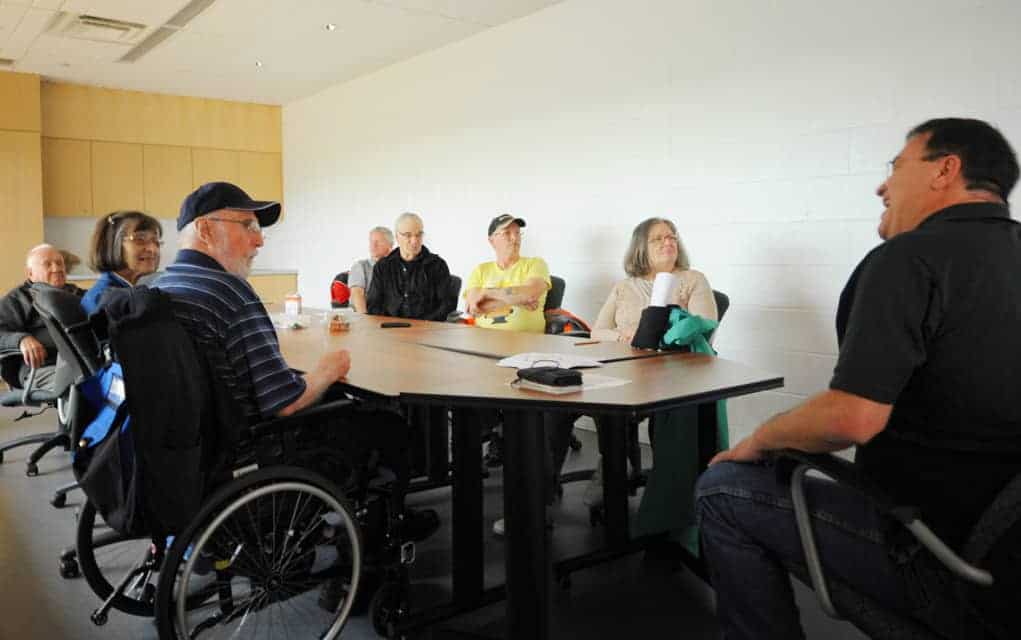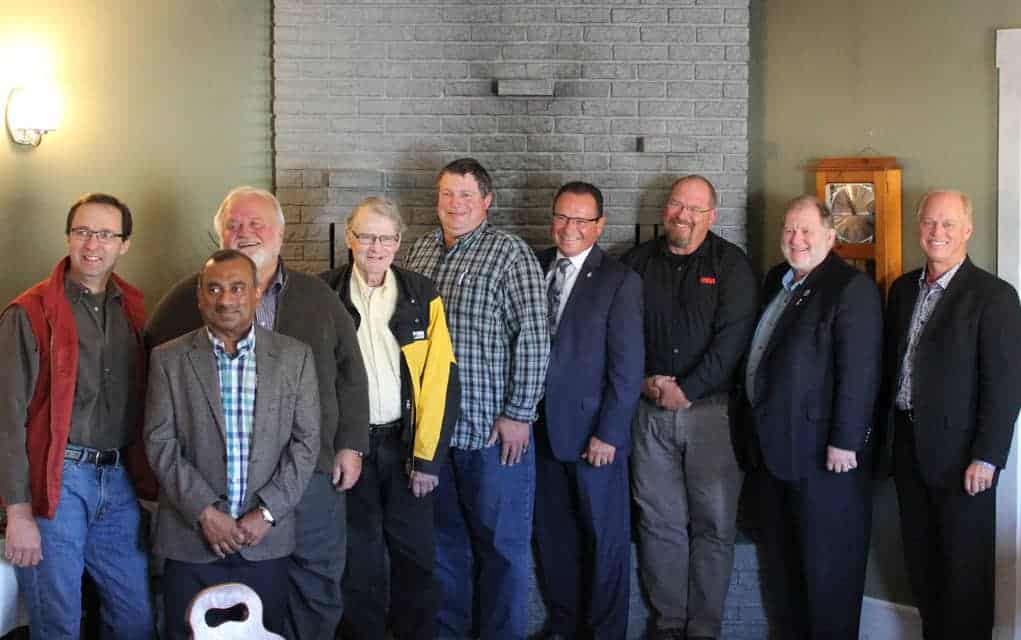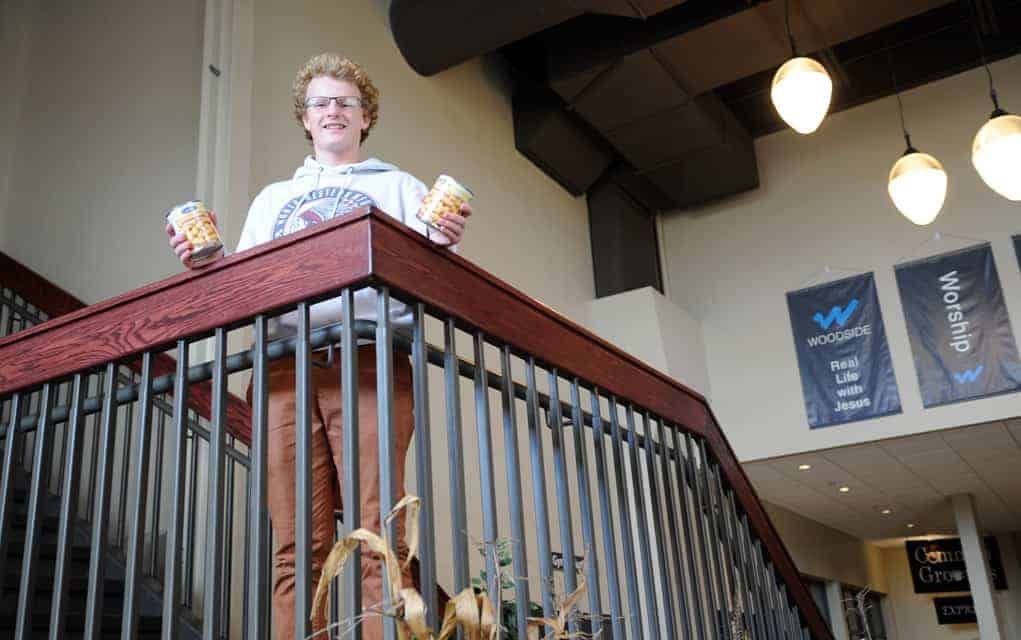Frank Austin sure knows what it means to make lemonade when life hands you some lemons.
Austin suffered a stroke in 2008 but he hasn’t let it slow him down. This month marks the fifth anniversary of the support group for people with aphasia, Expressive Café, which he created in Elmira.
This Saturday, Oct. 29, is also World Stroke Day.
Aphasia is a disorder that affects your communication skills and often happens after a stroke. Every week he meets with other people who have aphasia, to chat and do some brain games to help them improve their spoken and written skills.
The support group is just as much therapy for the other group members as it is for Austin. But it’s also much more than that.
“They have become friends. After my stroke you seem to lose friends, people they did business with, family members and so forth. They’re replacing that. Otherwise it’s a lonely place,” Austin said.
The group meets every Thursday morning at the Woolwich Memorial Centre. Getting out to the weekly meetings has become an important part of participants’ lives.
“I learned to write. I couldn’t write. I could print it and then it would go funny. I don’t do that anymore,” said Don Tosh.
Hugh Smid says it’s helped him to use a lot of words he wouldn’t use before his stroke.
“Before my stroke I was happy go lucky and now I have had the stroke, my voice has come right down. Doing it this way I’ve brought it up a little bit. I’m getting used to the words that I’m using,” Smid said.
Walter Meuler comes all the way from Stratford for the brain stimulation and camaraderie.
“A stroke is devastating probably for everybody. When I come here I think we all learn it’s not the end of the world. We recuperate at different stages. You find out you are not the only one,” Meuler said.
Herta Wunder comes to the meetings with her husband Tom.
“For us, it gives him self-confidence because Tom has really bad aphasia, he doesn’t speak. He was more inward, now he comes out. That really helps him a lot. The group gives him that because at home he’s only with me,” Herta said.
Deborah Bradley explains the activities and the conversations have greatly helped her speech. Now she speaks loudly instead of softly. And she commends Austin for his commitment to the cause.
“He was just there, a motivator,” Bradley said.
Austin notes he’s not a speech pathologist but he knows what kinds of brain stimulation worked for him after he had his stroke. It took about six months for him to even be able to say Deborah, but the weekly practice got him there.
“It was a comical act if you will, but it was serious,” Austin said.
Everything they do in the group involves interactions where they at least have to be speaking the answers out, the best that they can. They start off with conversation and then do different activities such as trivia games using PowerPoint that Austin made or fill-in-the-blank exercises on paper.
The other members have gained enough confidence that when Austin can’t be there one week, they’re volunteering to run the meeting.
He notes one of his proudest moments was when Tom walked into the meeting about a year and a half ago. Austin first visited him in the hospital before he created Expressive Café.
“We had another member that three years after the first stroke the husband came up to me and said ‘we went to a birthday party last week and they were singing happy birthday.’ Now he was surprised to hear his wife singing happy birthday let alone when he said to me ‘I haven’t heard her voice in two years.’ Those little things, how can I give up?” Austin said.
The group just manages to get by with enough funding to rent the room each week, print brochures and for supplies. It takes about $5,000 to run the group each year. If they had more funds he’d look into running a second group.
“Over the past year our numbers have dwindled, not too much, but when we’re dealing with an older group it happens, other strokes or have passed on,” Austin said.
He’s had as many as 18 people attend the group and he says that’s pretty much the most they can fit. Now they’re down to about eight people on a regular basis. The group is open to anyone with aphasia.
“There’s always another spot at the table,” Austin said.









